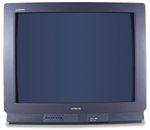LATEST ADDITIONS
|
Jan 30, 2000
|
Jan 25, 2000 |
First Published: Jan 26, 2000
|
Jan 25, 2000 |
First Published: Jan 26, 2000
|
Jan 25, 2000 |
First Published: Jan 26, 2000
|
Jan 25, 2000 |
First Published: Jan 26, 2000







